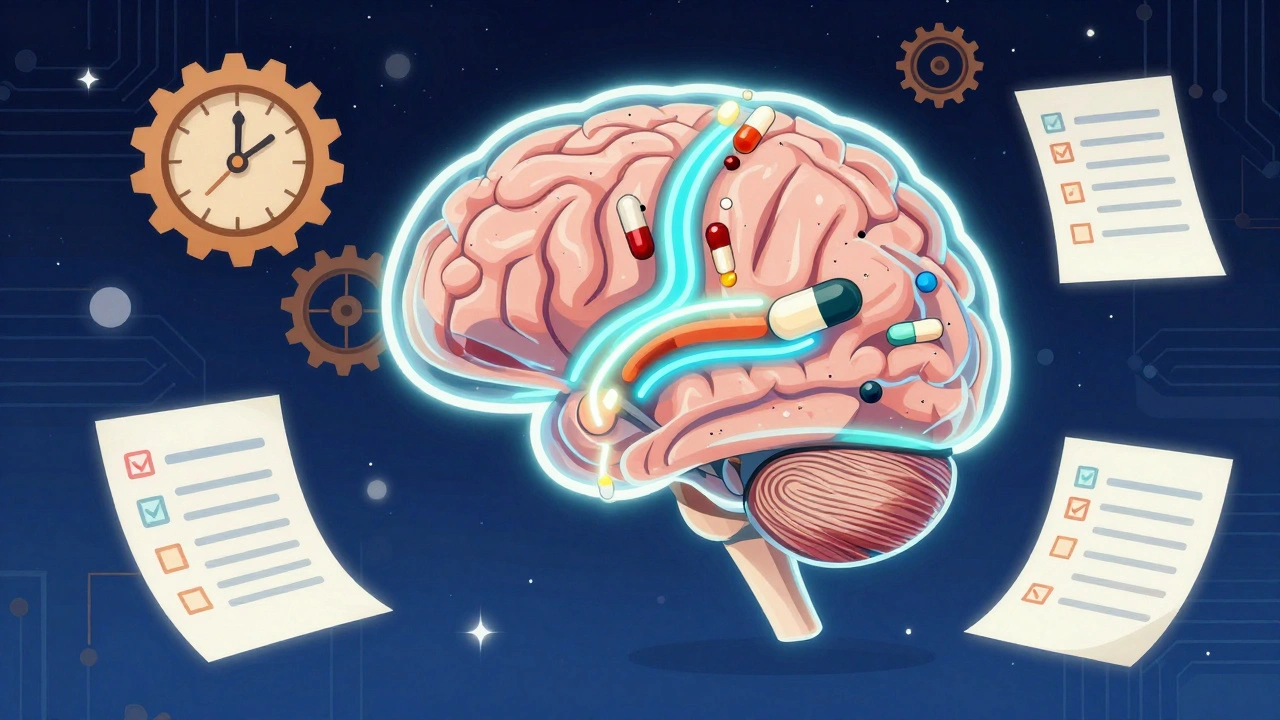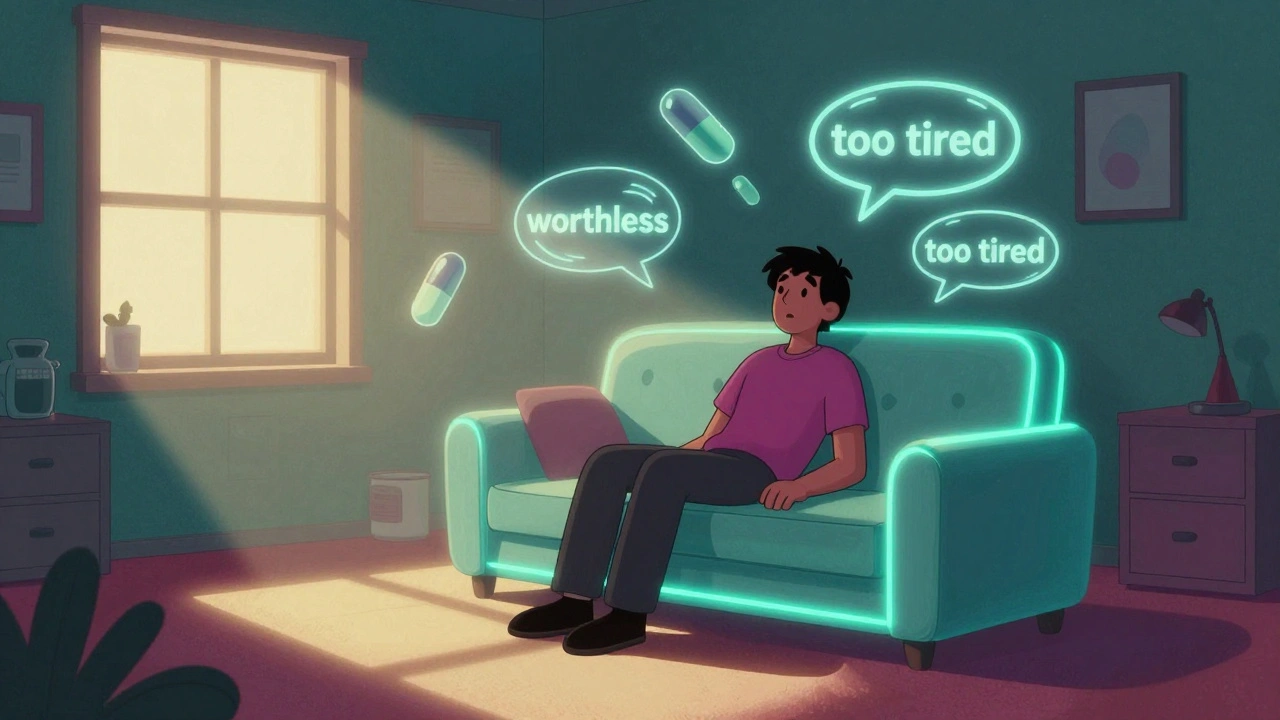Mental Health – Best Alternatives to Wellbutrin
If you’ve tried Wellbutrin and it didn’t click, you’re not alone. Many people search for other ways to lift mood, beat the winter blues, or tame anxiety. This page breaks down the most reliable alternatives, so you can decide what fits your life without the guesswork.
Why Look for Alternatives?
Wellbutrin (bupropion) works for a lot of folks, but it’s not a one‑size‑fits‑all. Some users feel jittery, others don’t get enough mood lift, and a few experience side effects that outweigh the benefits. When a medication doesn’t match your chemistry, it’s smart to explore other options rather than suffer in silence.
Beyond medication, mental health can improve with lifestyle tweaks. Light exposure, regular exercise, and sleep hygiene often boost the results of any treatment. Knowing the full toolbox helps you take control and avoid feeling stuck.
Popular Options You Can Try
1. Light Therapy for Seasonal Affective Disorder (SAD)
During short, dark days, a bright‑light box mimics sunlight and can lift mood in as little as 20 minutes a day. Look for a box that delivers at least 10,000 lux and place it near your breakfast spot. Consistency is key – use it each morning for the best effect.
2. Lexapro (Escitalopram)
Lexapro is a selective serotonin reuptake inhibitor (SSRI) that many people find gentle yet effective for depression and anxiety. It usually starts working within 2‑4 weeks and has a lower risk of causing weight gain compared with some older antidepressants.
3. Cymbalta (Duloxetine)
Cymbalta tackles both mood and pain, making it a solid choice if you have chronic aches along with depression. It can also help with generalized anxiety disorder, giving you a two‑in‑one solution.
4. Remeron (Mirtazapine)
If sleep is your biggest issue, Remeron’s sedating effect can be a bonus. It often improves appetite too, which can be helpful for those who lose weight when they’re down.
5. Trintellix (Vortioxetine)
Trintellix is newer and works on multiple serotonin pathways. Some users report clearer thinking and less emotional blunting compared with traditional SSRIs.
6. Trazodone (low dose)
Used mainly for insomnia, low‑dose trazodone can also lift mood without the typical SSRI side effects. It’s a good add‑on if you’ve tried other pills and still struggle to sleep.
Every medication comes with its own set of possible side effects, so talk to a doctor or pharmacist about any concerns. A simple blood test can rule out thyroid issues or vitamin deficiencies that might mimic depression, saving you from unnecessary meds.
Beyond pills, consider these practical steps:
- Spend at least 30 minutes outside each day – natural light helps regulate mood.
- Move your body. Even a short walk can release feel‑good chemicals.
- Track your sleep. Aim for 7‑9 hours in a dark, cool room.
- Stay connected. Chatting with friends or support groups reduces isolation.
Finding the right mental‑health plan is a bit like trial and error, but with the right information you can narrow down choices fast. Use this guide as a starting point, discuss options with a healthcare professional, and give each new approach a few weeks to show results.
Remember, you don’t have to stay stuck with one medication. Exploring alternatives, adding light therapy, and tweaking daily habits can give you the relief you deserve. Your mental health matters – take the next step today.
-
 VIEW POST
VIEW POSTKetamine and Esketamine: Fast-Acting Depression Treatments Compared
Jan, 3 2026|11 CommentsKetamine and esketamine offer rapid relief for treatment-resistant depression, but they differ in effectiveness, side effects, cost, and access. IV ketamine works faster and stronger; esketamine is safer and more convenient. Here's how to choose. -
 VIEW POST
VIEW POSTADHD Treatment: Stimulants, Non-Stimulants, and Behavioral Strategies That Work
Dec, 4 2025|12 CommentsLearn how stimulants, non-stimulants, and behavioral strategies work together to manage ADHD symptoms effectively. Evidence-based options for children and adults, with real-world tips and latest research. -
 VIEW POST
VIEW POSTMajor Depressive Disorder: Antidepressants and Psychotherapy Options That Work
Dec, 1 2025|15 CommentsMajor Depressive Disorder affects millions, but effective treatments exist. Learn how antidepressants and psychotherapy like CBT work, why combining them is best, and what to expect during treatment. -
 VIEW POST
VIEW POSTCyproheptadine’s Antidepressant Mechanism Explained
Oct, 25 2025|9 CommentsExplore how cyproheptadine works as an antidepressant, its mechanisms, evidence, dosing, side effects, and how it compares to standard SSRIs. -
 VIEW POST
VIEW POSTBest Alternatives to Wellbutrin for Treating Seasonal Affective Disorder: Light Therapy, Medication & More
May, 20 2025|12 CommentsFeeling gloomy as the days get shorter? If Wellbutrin isn't the right fit for your seasonal affective disorder or you want other options, you're not alone. This guide explores proven alternatives, including light therapy and other medications, plus helpful, real-world tips you can try today. Learn the facts so you can take charge of your mental wellness all year round. -
 VIEW POST
VIEW POSTTop 5 Alternatives to Wellbutrin SR for Depression Relief in 2024
Dec, 11 2024|11 CommentsIn 2024, individuals seeking alternatives to Wellbutrin SR for depression relief have several options available. This article explores five alternatives, including Lexapro, Cymbalta, Remeron, Trazodone, and Trintellix, discussing their effectiveness, benefits, and potential side effects. Readers will gain insights into how each medication works and its role in managing depression, generalized anxiety disorder, and other conditions. The article concludes with a comparison table to help readers make informed decisions about their mental health treatments.